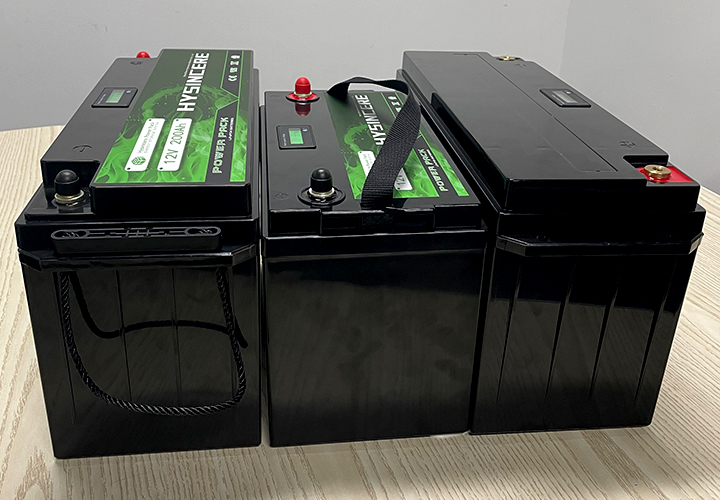
The positive and negative electrode materials used in polymer lithium ion
batteries are the same as liquid lithium ions. The positive electrode materials
are divided into lithium cobalate, lithium manganate, ternary materials and
Lithium iron phosphate materials. The negative electrode is graphite, which is
basically the same as the working principle of liquid electrolyte lithium
batteries. Their main difference lies in the difference in electrolytes. Liquid
lithium-ion batteries use liquid electrolytes, while polymer lithium-ion
batteries use solid polymer electrolytes instead. The outer packaging of polymer
lithium-ion batteries is mainly aluminum plastic film, and due to the paste like
lithium material in the middle, the shape can be customized arbitrarily. Polymer
lithium-ion batteries can be divided into three categories:
(1) Solid polymer electrolyte lithium-ion batteries. The electrolyte is a
mixture of polymers and salts, and this type of battery has low ionic
conductivity at room temperature, making it suitable for high-temperature
use.
(2) Gel polymer electrolyte lithium ion battery. Adding plasticizers and
other additives to the solid polymer electrolyte can improve the ion
conductivity and make the battery usable at room temperature.
(3) Lithium ion batteries with polymer positive electrode materials. Using
conductive polymers as cathode materials, its specific energy is three times
that of existing lithium-ion batteries, which is the latest generation of
lithium-ion batteries. Due to the use of solid electrolytes instead of liquid
electrolytes, polymer lithium-ion batteries have advantages over liquid
lithium-ion batteries, such as thinness, arbitrary area, and shape, and do not
pose safety issues such as leakage, combustion, and explosion. Therefore,
aluminum plastic composite films can be used to manufacture battery shells,
thereby improving the specific capacity of the entire battery; Polymer
lithium-ion batteries can also use polymers as cathode materials, which can
increase their mass to energy ratio by more than 50% compared to liquid
lithium-ion batteries. Polymer lithium-ion batteries have improved working
voltage and charge discharge cycle life compared to lithium-ion batteries. Based
on the above advantages, polymer lithium-ion batteries are hailed as the next
generation of lithium-ion batteries.
Read recommendations:
lifepo4 battery 12v sales
lithium marine batteries
12V 150Ah 200Ah LiFePo4 Motive Battery Pack for Clean Car Electric Vehicle
Elevate Your Power Solutions: The Efficiency and Performance of 72 Volt Lithium Batteries
What parameters should I consider for lithium battery design?best solar generator for home backup
